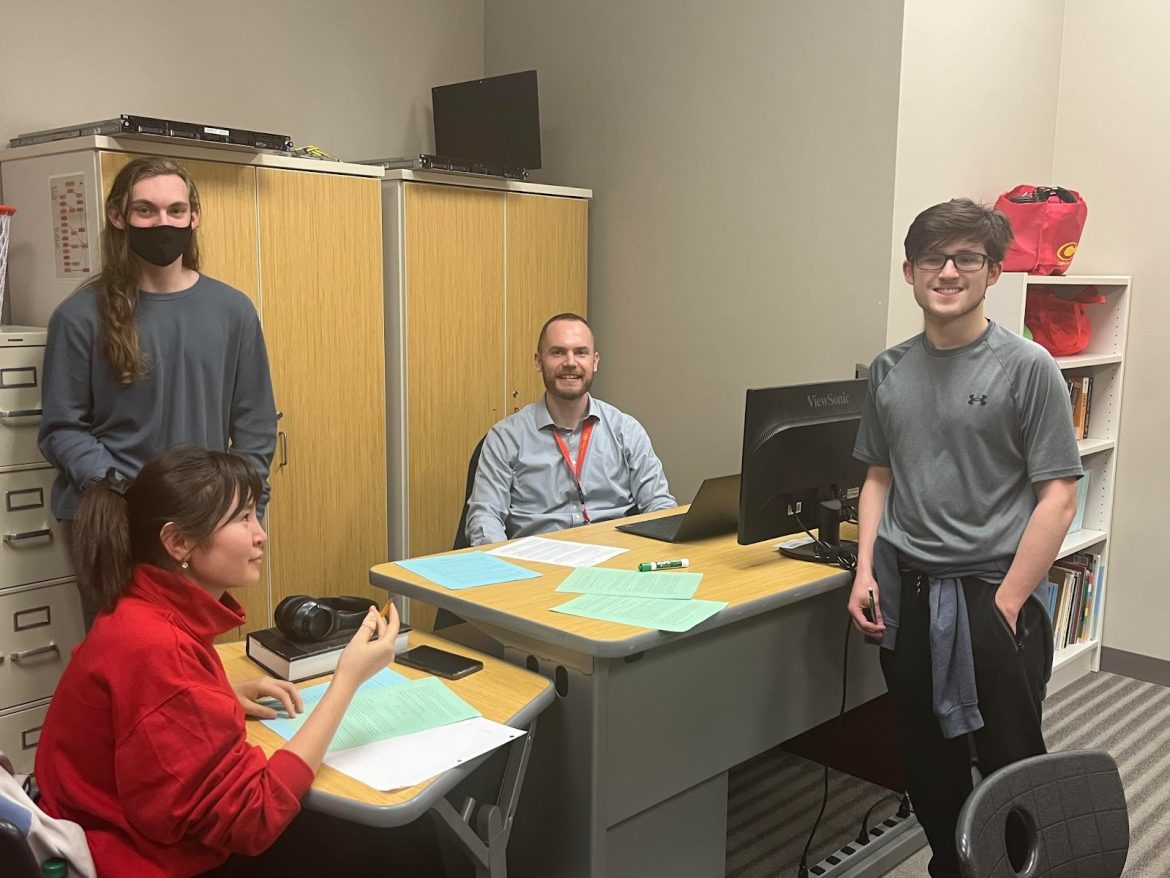Math Team members Durdona Omonova (front left), Jefferson Slutzky (back left) and William Simpson (right) review for their upcoming competition on March 1 with John Walker, CTAE and special education department teacher and Math Team sponsor (center). Walker sponsored the team this season and says the team’s activities have benefitted members. “They gain exposure to the type of math questions that might be asked at a university level (and) they gain exposure to that level of rigor (as well as) exposure to people intentionally trying to trick them on math tests,” Walker said. Photo by Amya Hopkins
The CCHS Math Team will compete in the 49th Augusta University Math Contest in Augusta, Georgia, against other high schools from across the state.
The Clarke Central High School Math Team will travel to Augusta University’s Summerville campus in Augusta, Georgia, on March 1 for the 49th Augusta University Math Contest.
Math Teams from across the state will fill a lecture hall at the Jaguar Student Activities Center Ballroom. There, competitors will take individual math tests for three to four hours, answering as many questions as they can. Afterwards, school teams will work together to solve a set of questions.
“(In) the final round, you have three big difficult questions you get to work on as a team, and then your team score is the amount of points you got from the team section plus all the team members’ individual scores,” Math Team member Grayson Krause said.
“(In) the final round, you have three big difficult questions you get to work on as a team, and then your team score is the amount of points you got from the team section plus all the team members’ individual scores”
— Grayson Krause,
Math Team member
Competitions like the Mathematical Modeling Competition and the annual University of Georgia math tournament allow students to win cash prizes ranging from $100 to $100,000. However, CTAE and special education department teacher John Walker, Math Team sponsor, hopes to further encourage student involvement through engaging meetings.
“My goal is that the students have fun, talk to each other, and enjoy their time solving math problems,” Walker said. “We talk about (math) and it’s amazing, it’s actually really fun. Last meeting, we went through this whole tournament, front and back, just nothing but math problems. At the end of that hour, we stopped and we started talking about them, and everybody was really into it.”
At Krause’s previous math competitions, students would perform individually. However, he now sees the benefit of working collaboratively with teammates.
“(Teamwork) adds a level of difficulty because not only are you essentially solving problems, but you also have to communicate your ideas really well with everybody else.” Krause said. “It feels a lot more fun to do competitions where it’s more of a team aspect.”
